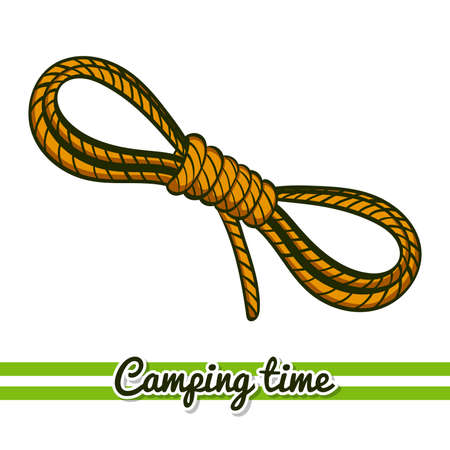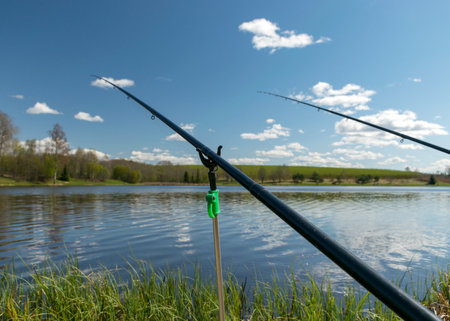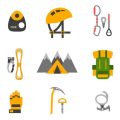Understanding Fishing Licences in the UK
In the United Kingdom, fishing is a treasured pastime for many families, offering a wonderful way to enjoy nature and spend time together. However, before you and your loved ones cast your lines into the water, it’s important to understand the legal requirements surrounding fishing licences. Whether you’re angling for freshwater species like carp or pike, or heading to the coast for sea fishing, the type of licence you need depends on where and what you plan to fish.
For freshwater fishing—such as rivers, lakes, canals, and reservoirs—you will generally need an Environment Agency rod fishing licence if you are in England or Wales. Scotland has different regulations, often managed locally by District Salmon Fishery Boards or private fisheries. Northern Ireland also operates its own licensing system. These licences can be easily obtained online through the government’s official website or at local Post Offices. It’s important to note that children under 13 do not require a licence, while those aged 13 to 16 can get a junior licence free of charge but must still register.
If your family fancies a day out by the sea hoping to catch mackerel or bass, you’ll be pleased to know that no licence is required for recreational sea fishing from the shore or a boat in most parts of the UK. However, certain areas may have specific bylaws or protected zones where restrictions apply, so it’s always wise to check local rules before heading out.
Remember, responsible angling starts with making sure everyone who needs a licence has one. Not only does this keep your family on the right side of the law, but licence fees also help support fish conservation and habitat protection—so future generations can enjoy fishing too.
2. Fishing Permissions and Local Rules
Before heading out for a peaceful day by the water with your little ones, it’s essential to know that having a rod licence is only the first step in legal angling across the UK. Beyond your Environment Agency licence, you’ll often need to seek additional permissions depending on where you wish to fish. Much of the land surrounding lakes, rivers, and reservoirs is privately owned or managed by angling clubs. This means you usually need explicit consent from either the landowner or a fishing club to cast your line. Let’s break down what permissions might be required:
| Fishing Location | Permission Needed | Who to Contact |
|---|---|---|
| Private Lakes or Reservoirs | Yes, often membership or day ticket | Landowner or Club Secretary |
| Rivers Managed by Clubs | Yes, club permit usually required | Local Angling Club |
| Public Canals | May require Waterways Wanderer permit or club membership | Canal & River Trust or affiliated club |
| Council-owned Ponds | Sometimes free, but bylaws apply | Local Council |
The Importance of Respecting Local Bylaws and Rules
Each area may have its own set of bylaws and rules—these could include close seasons for certain species, restrictions on bait types, catch-and-release requirements, or specific fishing methods allowed. Ignoring these local regulations can lead to fines, lost fishing privileges, and even distress for the wildlife we all want to protect. If you’re unsure about any rules, don’t hesitate to ask at your local tackle shop or contact the managing club directly.
A Family-Friendly Approach to Responsible Angling
Taking the time to secure proper permissions and understand local rules isn’t just about keeping within the law—it’s also about setting a good example for young anglers. By showing respect for nature and community agreements, we help ensure that everyone can enjoy fishing safely and happily for generations to come. So next time you pack up your rods and snacks for a family outing, take a moment to check those permissions and celebrate doing things the right way together!

3. Closed Seasons and Conservation Laws
If you’re planning a family fishing adventure in the UK, it’s important to know that certain times of year are reserved just for the fish! This is what’s known as the “closed season”—a special period when fishing for particular species or in certain waters is not allowed. The main goal here is to give fish a chance to spawn undisturbed, ensuring healthy populations for generations to come.
When Are Closed Seasons?
Closed seasons vary depending on where you’re fishing and which species you’re after. For example, in England and Wales, the coarse fish closed season typically runs from 15 March to 15 June on rivers, streams, and some canals. Stillwaters and most canals are usually open year-round, but always double-check local regulations before you cast your line! Salmon and trout have their own specific closed seasons too, which can differ across regions.
Conservation Laws: Protecting Our Fishy Friends
The UK has strict conservation laws designed to keep our waterways and fish populations healthy. These laws might include minimum landing sizes (so juvenile fish have a chance to grow), limits on how many fish you can take home, and bans on using certain baits or methods that could harm habitats or wildlife. By following these rules, we all help make sure our rivers and lakes stay full of life.
Why It Matters for Young Anglers
Understanding closed seasons and conservation rules isn’t just about following the law—it’s about caring for nature together as a family. When children learn why we sometimes have to wait before fishing or why we gently release certain catches, they develop respect for wildlife and the world around them. So next time you’re out with your little ones, chat about these rules and celebrate being responsible anglers!
4. Fishing Equipment and Bait Regulations
When it comes to angling in the UK, using the right equipment and bait is not only about improving your chances of a good catch but also about respecting the law and the environment. The UK has clear regulations designed to protect fish populations, local wildlife, and the water ecosystem. Here’s a friendly guide for families and fishing enthusiasts on how to fish responsibly and legally.
Understanding Legal Gear
Anglers must ensure their gear complies with local byelaws. For example, certain waters restrict the use of specific types of rods or reels, and there are rules about the maximum number of rods you can use at one time. Below is a handy table summarising essential gear restrictions:
| Equipment | Regulation | Typical Restriction |
|---|---|---|
| Rods per Angler | Varies by location | Usually 2 (sometimes up to 4 with extra licence) |
| Hooks | Barbless often required | Reduces harm to fish |
| Nets & Keepnets | Must be knotless | Protects fish scales and skin |
| Landing Nets | Compulsory in many places | Aids safe handling and release |
Bait: What’s Allowed and What’s Not?
The choice of bait is just as important as your tackle. Certain baits are banned or restricted to prevent pollution or the spread of disease among fish stocks. For example, live baiting with non-native species is strictly prohibited, and in some fisheries, groundbait may be limited to protect water quality.
Bait Restrictions Quick Guide:
- Maggots, worms, sweetcorn: Commonly allowed but always check local rules.
- Live fish as bait: Must be sourced from the same water; non-native species are banned.
- Bread, pellets, boilies: Often permitted in moderation.
- Banned substances: Fish oils or animal products may be restricted in certain areas.
Together for Responsible Angling
Fishing responsibly means staying up-to-date with current regulations. Always check signage at your chosen venue or consult the Environment Agency website before you cast off. By choosing legal equipment and ethical bait, you help preserve Britain’s cherished waterways for generations of young anglers—perhaps even sharing a peaceful day out on the bank with your own children while teaching them about care for nature.
5. Youth and Family Fishing
Fishing is a wonderful way for families to bond and introduce children to the joys of nature. In the UK, there are specific rules and licence requirements tailored for young anglers, ensuring both fun and responsible participation. Children under 13 can fish without a rod licence, while those aged 13 to 16 require a Junior Rod Licence, which is currently free but must be obtained before fishing. Adults supervising or fishing alongside young people need the appropriate adult licences.
Family-Friendly Waters and Permissions
Many fisheries, canals, and rivers across the UK welcome families and provide designated areas for young anglers. However, always check local regulations as some waters require additional day permits or club memberships even for children. Contacting the fishery or checking their website beforehand helps avoid disappointment and ensures compliance with local rules.
Safety First: Tips for Family Outings
Safety is paramount when fishing with children. Always ensure youngsters wear suitable clothing, sun protection, and life jackets near deeper waters or banks. Keep a close eye on them at all times and bring along a first-aid kit just in case. Teaching children about handling fish gently and releasing them properly encourages respect for wildlife from an early age.
Responsible and Lawful Angling Together
Before heading out, involve your children in learning about closed seasons, protected species, and size limits. Encourage them to pick up litter and leave the site cleaner than they found it—instilling good habits for future generations. Remember, following the rules not only protects fish stocks but also helps everyone enjoy peaceful days by the water.
6. Reporting and Avoiding Illegal Activities
Being a responsible angler in the UK means more than just following the rules yourself—it’s also about helping to protect our waters and fish populations for future generations. Recognising and reporting illegal fishing practices is an important part of this responsibility. Here’s how you can play your part in maintaining the integrity of angling across the country.
How to Recognise Illegal Fishing Practices
Illegal fishing can take many forms, from fishing without a valid licence or out of season, to using banned equipment or taking more fish than allowed. You might also notice people fishing in protected areas or disturbing wildlife habitats. Keep an eye out for:
- Unattended rods or excessive numbers of rods per person
- Fishing during closed seasons or in restricted zones
- Use of prohibited baits or methods, such as nets where they are not permitted
- Large amounts of litter or damage to bankside vegetation
If something doesn’t look right, it probably isn’t.
How to Report Suspected Illegal Activity
If you suspect someone is breaking the law, it’s important to report it to the proper authorities rather than confronting them directly. In England and Wales, you can contact the Environment Agency’s incident hotline on 0800 80 70 60. For Scotland, contact Fisheries Management Scotland or Police Scotland. In Northern Ireland, reach out to the Department of Agriculture, Environment and Rural Affairs (DAERA). Make a note of what you saw, including the location, time, and any distinguishing details about those involved.
Be a Responsible Member of the Angling Community
Beyond reporting illegal activities, there are many ways you can support responsible angling:
- Educate new anglers about local laws and best practices
- Dispose of litter properly and take all your belongings home with you
- Respect other anglers, landowners, and wildlife at all times
- Participate in local clean-up days or conservation projects when possible
Together for the Future of UK Angling
Your actions set an example for others and help ensure that fishing remains a cherished pastime across the UK. By staying vigilant, reporting wrongdoing, and encouraging good practice within your community, you’re doing your bit to keep Britain’s rivers, lakes, and coastlines healthy for everyone—today and tomorrow.


